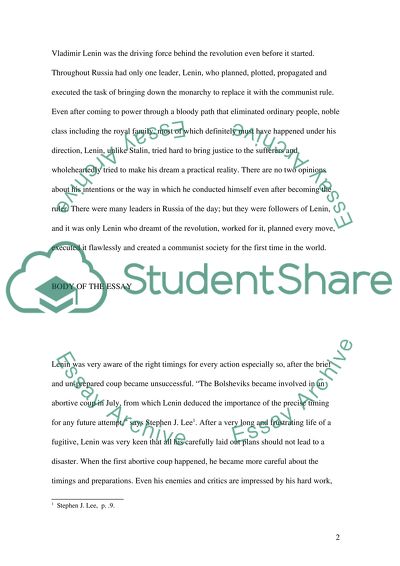Cite this document
(“Lenin and Bolshevik Revolution Essay Example | Topics and Well Written Essays - 2500 words”, n.d.)
Lenin and Bolshevik Revolution Essay Example | Topics and Well Written Essays - 2500 words. Retrieved from https://studentshare.org/history/1501932-lenin-and-bolshevik-revolution
Lenin and Bolshevik Revolution Essay Example | Topics and Well Written Essays - 2500 words. Retrieved from https://studentshare.org/history/1501932-lenin-and-bolshevik-revolution
(Lenin and Bolshevik Revolution Essay Example | Topics and Well Written Essays - 2500 Words)
Lenin and Bolshevik Revolution Essay Example | Topics and Well Written Essays - 2500 Words. https://studentshare.org/history/1501932-lenin-and-bolshevik-revolution.
Lenin and Bolshevik Revolution Essay Example | Topics and Well Written Essays - 2500 Words. https://studentshare.org/history/1501932-lenin-and-bolshevik-revolution.
“Lenin and Bolshevik Revolution Essay Example | Topics and Well Written Essays - 2500 Words”, n.d. https://studentshare.org/history/1501932-lenin-and-bolshevik-revolution.


